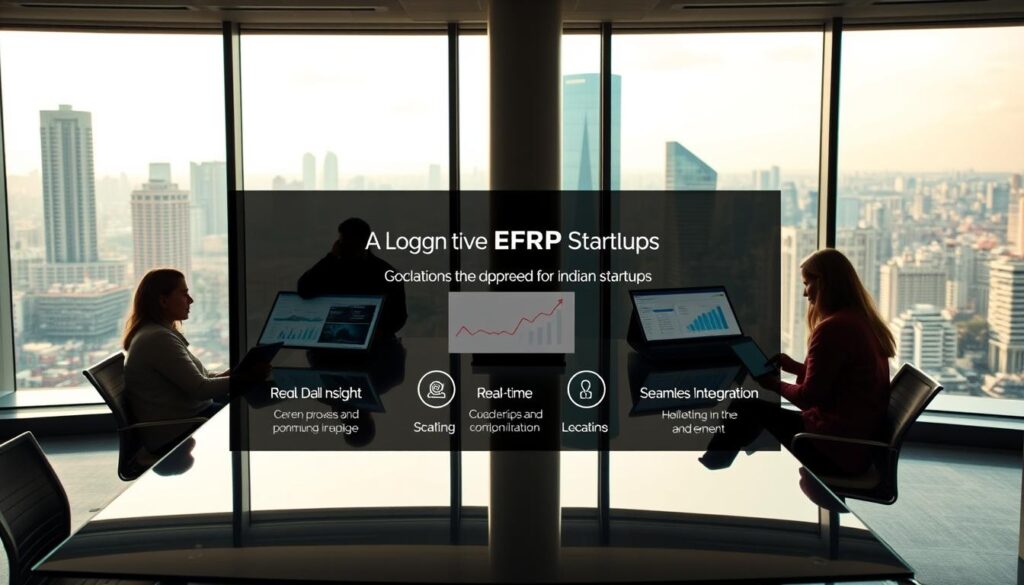In the dynamic landscape of Indian entrepreneurship, cloud ERP for startups has emerged as a transformative technological solution. As emerging businesses seek scalable and efficient management systems, startup ERP systems are becoming critical tools for organisational success.
The rapid digital transformation in India’s startup ecosystem demands sophisticated yet flexible technological infrastructure. An ERP for emerging businesses provides comprehensive management capabilities that enable lean operations and strategic growth across multiple business domains.
Modern cloud ERP platforms offer Indian startups unprecedented opportunities to streamline processes, reduce operational costs, and maintain competitive agility. These integrated solutions empower entrepreneurs to focus on core business strategies while managing complex administrative challenges.
Key Takeaways
- Cloud ERP enables rapid scalability for Indian startups
- Integrated solutions reduce operational complexity
- Cost-effective technological infrastructure
- Real-time data management and analytics
- Enhanced decision-making capabilities
- Seamless digital transformation support
Understanding Cloud ERP for Startups: Benefits and Features
Cloud-based ERP solutions are transforming how Indian startups manage their business operations. These intelligent systems offer a comprehensive approach to streamlining organisational processes, enabling young businesses to compete effectively in a dynamic market landscape

Modern startups require flexible technology that grows alongside their business ambitions. Cloud ERP benefits for startups include scalable infrastructure, real-time data access, and reduced operational complexities that traditional software cannot match.
Core Components of Digital Enterprise Management
Robust cloud-based ERP solutions typically encompass critical business modules such as financial management, inventory tracking, human resources, and customer relationship management. These integrated systems provide startups with a unified platform for tracking performance, managing resources, and making data-driven decisions.
Strategic Advantages for Growth-Oriented Businesses
Cost-effective ERP for startups delivers significant strategic advantages. By eliminating expensive hardware investments and reducing IT maintenance expenses, young companies can allocate resources towards core business development and innovation.
Financial Considerations and Value Proposition
Startups can expect a compelling return on investment through cloud ERP implementation. The predictable subscription models, coupled with rapid deployment capabilities, enable businesses to achieve operational efficiency without substantial upfront capital expenditure.
Implementing Cloud ERP Systems for Business Growth

Navigating the complex landscape of cloud ERP implementation for small businesses requires strategic planning and careful execution. Startups in India increasingly recognise the transformative potential of scalable ERP solutions that streamline operations and drive organisational efficiency.
Selecting the right small business ERP software begins with a comprehensive assessment of your organisation’s unique requirements. Entrepreneurs should evaluate solutions that offer flexible configurations, seamless integration capabilities, and robust reporting tools. The ideal cloud ERP system adapts to your business’s evolving needs while providing real-time insights into critical operational metrics.
Data migration represents a critical phase in cloud ERP implementation. Startups must develop a meticulous strategy for transferring existing information, ensuring data integrity and minimising potential disruptions. Partnering with experienced implementation specialists can help mitigate risks and streamline the transition process.
Staff training emerges as a fundamental component of successful ERP adoption. Comprehensive training programmes enable team members to leverage the software’s full potential, fostering a culture of technological adaptability. Scalable ERP solutions for startups should prioritise user-friendly interfaces and intuitive design to accelerate learning curves.
Change management plays a pivotal role in ERP system integration. Leadership must cultivate an environment of openness, transparently communicating the benefits and addressing potential concerns. By creating a supportive framework, organisations can minimise resistance and maximise the strategic advantages of cloud-based ERP technologies.
Conclusion
Cloud ERP for startups represents a transformative technological solution enabling emerging businesses in India to streamline operations and accelerate growth. These sophisticated digital platforms provide lean organisations with powerful tools to manage complex business processes efficiently, reducing operational complexities and enhancing strategic decision-making capabilities.
Startups leveraging cloud ERP solutions gain substantial competitive advantages by accessing scalable infrastructure without significant upfront investments. The integrated systems support critical functions like financial management, inventory tracking, and resource allocation, enabling emerging businesses to focus on core strategic objectives while maintaining robust technological capabilities.
The Indian startup ecosystem continues to evolve rapidly, and ERP for emerging businesses has become an essential catalyst for sustainable growth. By embracing cloud-based technologies, young companies can optimise their operational workflows, improve productivity, and create resilient business models that adapt quickly to dynamic market conditions.
Digital transformation through cloud ERP empowers Indian startups to compete effectively in a globalised marketplace, providing them with sophisticated technological infrastructure that was previously accessible only to larger enterprises. As technology continues to democratise business capabilities, cloud ERP stands as a crucial enabler of innovation and entrepreneurial success.

